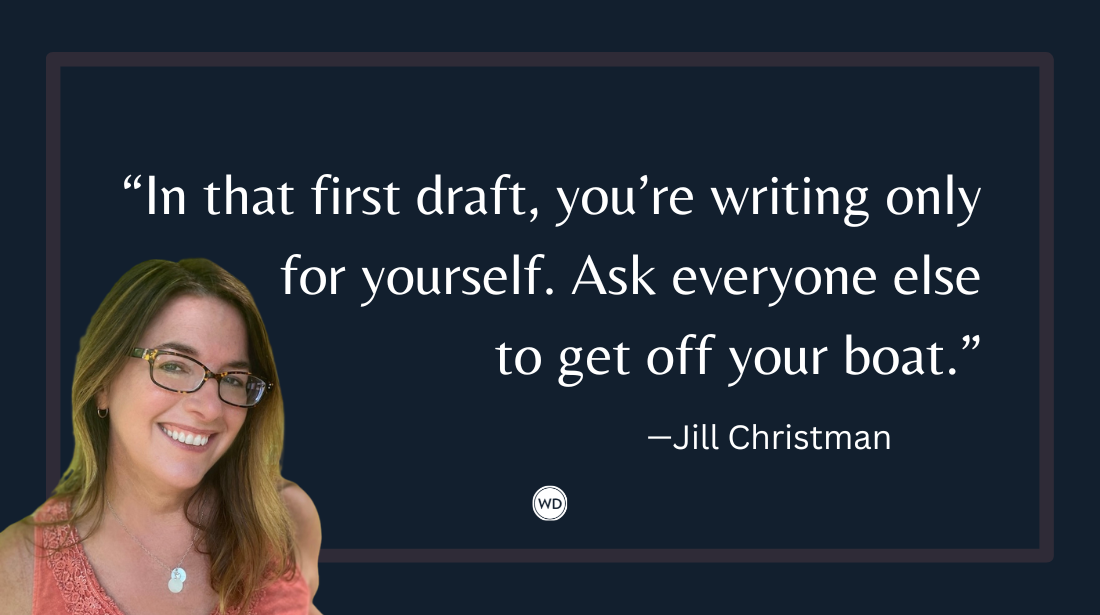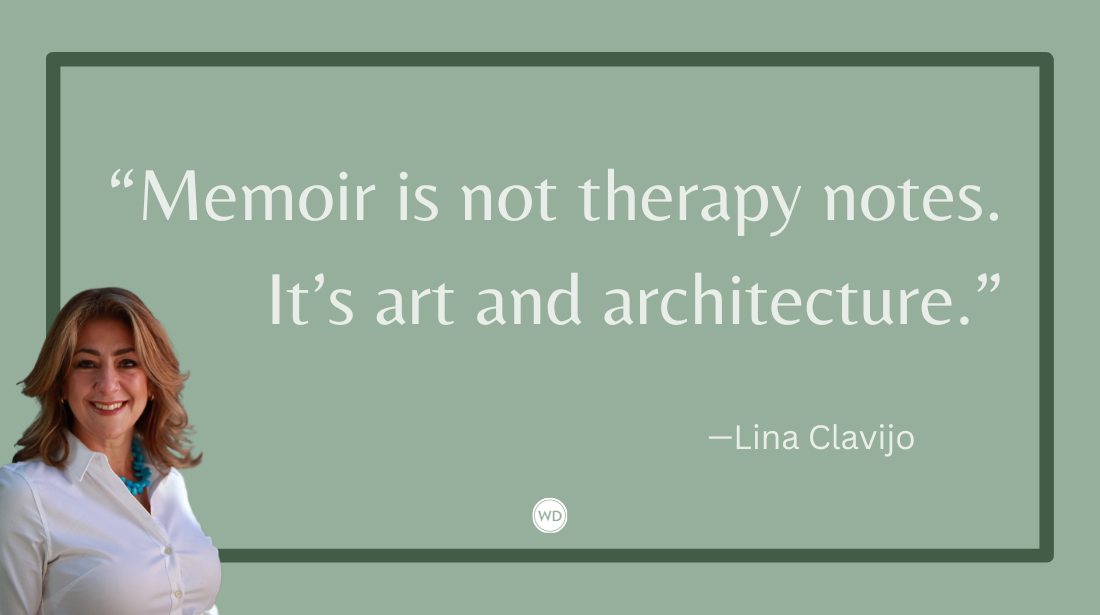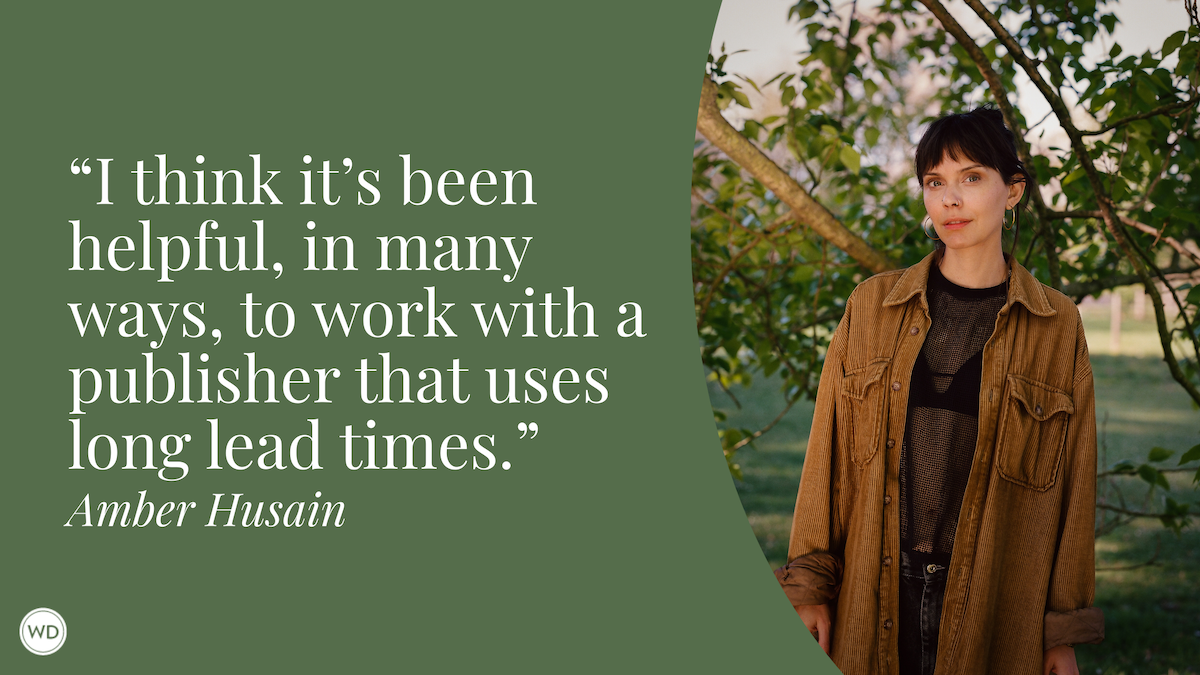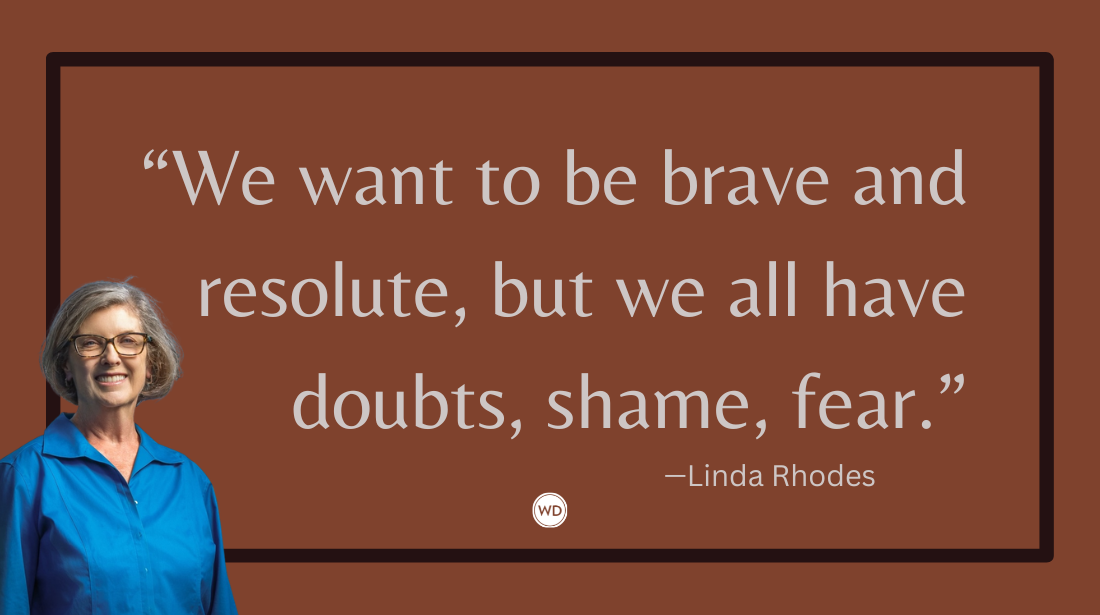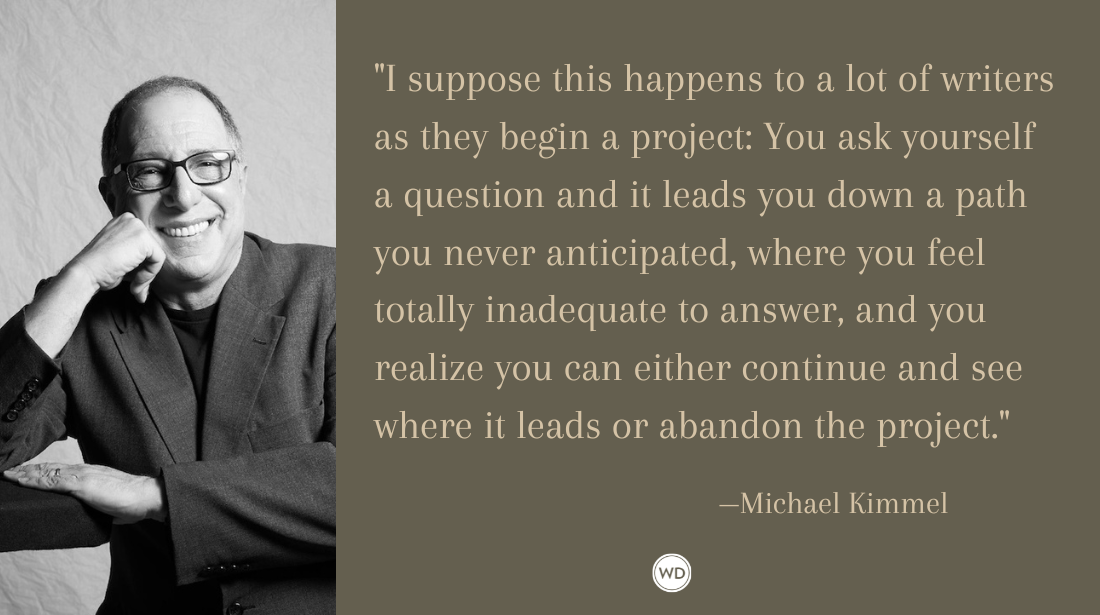The Market for Memoirs
Top literary agents get real about what you need to know to break in—and what you need to do to break out.
Objectivity can be hard for even the most skilled writers to achieve—particularly when the stories they’re writing are, by definition, personal. Still, if we want our work to be read, we need to be able to view it from the perspective of a reader. Does the story get your attention right away? Does the language carry you smoothly from one scene to the next? Is this something you would relate to, stay up late reading, recommend to your friends?
When your story is one you’ve lived rather than imagined, honest assessments like these can be tougher than ever to make—and understandably so. But if you’re writing a memoir—one you want to publish for an audience beyond your family and friends, that is—it’s imperative to understand where your work fits in. Will there be a market for a book like yours? If no one knows who you are, will anyone care about your story? Can you really transform your own remarkable (or not so remarkable) experiences into a work with appeal to a broad audience? The earlier you can answer these questions, the better off you’ll be.
To help you get started, we’ve assembled a round table of agents in the genre to reveal the inside story on the market for memoir. We didn’t hesitate to ask the tough questions—and they didn’t hold back on answering. The bad news: Sometimes it seems like everyone is writing a memoir—and not everyone’s story warrants one. The good news: Demand for the genre doesn’t seem to be fading, so that means there’s still room to break in. And, as with everything else in publishing, knowing how to increase your chances really can put you ahead of the game. Read on to find out how.
The Round Table
LANEY KATZ BECKER (laney@marksonthoma.com) is an agent at Markson Thoma Literary Agency in New York. Prior to becoming an agent, Becker was an advertising copywriter, freelance journalist, and award-winning author of fiction and nonfiction. Today, she uses her writing skills to help her authors shape their projects. She loves a great memoir, especially if it teaches her something new, exposes her to a different culture/country, or has a great voice. Becker specializes in debut authors; her “newbies” have made both national and international bestseller lists.
MOLLIE GLICK is an agent at Foundry Literary + Media (foundrymedia.com) specializing in literary fiction, memoir, and narrative nonfiction. Her recent projects include Ellen Bryson’s The Transformation of Bartholomew Fortuno, Zoe Klein’s Drawing in the Dust, and Jonathan Evison’s All About Lulu. She also recently closed a seven-figure sale for Josephine Angelini’s young adult series, Starcrossed.
JEFF KLEINMAN (foliolit.com) is a literary agent, intellectual property attorney and founding partner of Folio Literary Management. As an agent, Kleinman feels privileged to have the chance to learn an incredible variety of new subjects, meet an extraordinary range of people, and feel, at the end of the day, that he’s helped to build something—a wonderful book, perhaps, or an author’s career. His authors include Garth Stein, Robert Hicks, Charles Shields, Bruce Watson, Neil White, and Philip Gerard.
BYRD LEAVELL, a graduate of the University of Virginia and the Radcliffe Publishing Program, began his career at Carlisle & Company and then served as an agent at InkWell Management and Venture Literary. He is now in his fifth year as an agent at The Waxman Literary Agency (waxmanagency.com). His clients include Justin Halpern, John Parker Jr., Scott Sigler, Patrick McEnroe, Mark Frauenfelder, and Tucker Max; he has represented several bestsellers.
SHARLENE MARTIN founded Martin Literary Management (martinliterarymanagement.com) in 2003. She has since represented several New York Times bestselling nonfiction books, including Jane Velez-Mitchell’s iWant, Mary Jo Buttafuocco’s Getting It Through My Thick Skull, Brooke and Keith Desserich’s Notes Left Behind, and Suzanne Hansen’s You’ll Never Nanny in This Town Again. She is the co-author, with Anthony Flacco, of Publish Your Nonfiction Book: Strategies for Learning the Industry, Selling Your Book and Building a Successful Career.
What characteristics can make a memoir from an unknown writer marketable?
SHARLENE MARTIN: First of all, it needs a solid concept for the book that invites the reader’s concerns into the experience of reading it, instead of just saying, “Let me tell you all about wonderful me.” [It also needs] great writing, which means an identifiable narrative voice, a tone that is appropriate to the subject, an awareness of the need to keep a reader turning pages, and a thorough demonstration of spelling, grammar, and syntax.
JEFF KLEINMAN: No. 1: Voice. More and more these days, the writer’s voice—its memorability, the distinctiveness with which the author describes scenes, characters, events—really can make it stand apart. There are lots of potential factors that can make a memoir unputdownable (and therefore marketable), but these days that voice seems absolutely critical.
No. 2: Premise. Books need to be able to distinguish themselves from the others. It’s really tough—for an agent, editor, or bookseller—to sell a book that sounds like all the others, that makes the reader think, “Yeah, I’ve read that kind of book before.” So having a truly unique, special, compelling premise can make a huge difference.
No. 3: The author’s platform. The author may be “unknown,” but having published materials in well-known, preferably national, forums can provide a useful link to the buyer: I may not know who this writer is, but I know the paper she writes for, and I love/like/trust it, is what you want your buyer thinking.
LANEY KATZ BECKER: Unknown is the keyword in that question. Platform is more important than ever when it comes to previously unpublished authors. If you can bring a readership with you—[say,] because of your huge following on Facebook, Twitter or other social media—that counts for a lot. Previously published essays and/or articles are also enticing, especially if the magazine or journal will commit to running more of your work once the memoir pubs. And, of course, any broadcast media appearances help prove that your story is marketable and appealing to a wide audience.
BYRD LEAVELL: The easy answer is of course the writing. But if the story doesn’t sound extremely interesting and/or unique, the writer is pretty much going to have to be Faulkner to get editors excited.
Of course, “writing” and “story” are not exactly brain-busting answers to this question. Maybe the best way to [answer this] is to walk through the steps of a memoir submission. Usually, an agent and author will work for months to put together a 30–50 page proposal that lays the book out in detail. The agent will then get on the phone and call a carefully assembled list of editors (the submission list) and will describe (sell) each one over the phone on the strengths of this particular memoir. For me, this is usually going to involve some combination of the following: the strength or power of the narrative, the emotional impact it creates, and then the potential audience—because these are all the things that draw me to a good memoir in the first place.
Basically, if you’re unknown, you need a great story, and then you need to hit a 450-foot home run with your proposal that blows editors out of their chairs and has them visualizing tens or even hundreds of thousands of sales.
Which popular types of memoirs do you see as approaching a saturation point? Which do you see as areas to watch that could turn into the next memoir trend?
MARTIN: On some days it seems as though every therapist in the country who is dealing with addicts of one kind or another has told them to journal their recovery and then turn it into a book. Quitting booze or drugs is a good thing to do, but it isn’t the triumph of the human spirit.
MOLLIE GLICK: I’m sick of dysfunctional family stories, but I’m a big fan of memoirs by people who have lived lives the rest of us only dream of.
KLEINMAN: Memoirs about a guy (or woman) and his dog seem particularly challenging in this post–Marley & Me universe. Publishers keep cranking them out, and the public seems to keep buying them, but at, I suspect, lower levels than before. Another area that seems a bit challenging is war memoirs—from Afghanistan or Iraq—by either embedded journalists or service personnel. Finally, though books by cancer/disease survivors are prevalent, I find them very tough to sell to publishers (unless the survivor has some kind of name recognition).
As for the “next big thing,” I only wish I knew. I keep expecting Vietnam War memoirs to make a huge resurgence, but it hasn’t happened yet.
LEAVELL: I guess I approach the entire genre as though it’s already completely saturated. The key is finding a story, or a way to tell it, that separates your book from everything out there. When I’m working with a client, I try to steer them away from, “I was born in a big/small town, and I liked listening to punk music, and I hated my mother and blahdee blahda blah blah.” If you want to separate your story, find a way to tell it that focuses 100 percent on the reader and cuts out all the writing that is just there for your own ego. What do people want to read? I think they want to read one great story after another, with all the usual navel-gazing exposition cut out. And this is exactly what I try and get my clients to write.
What factors in a query or in the opening pages of a memoir will make you want to read more?
BECKER: For me, it’s all about a fresh story, told in a unique voice. I want the writer’s personality to ooze through the pages. I expect the writing to come to life. I especially enjoy a story that has the same page-turning momentum I look for in compelling fiction.
LEAVELL: Aggressive, confident, well-written prose that immediately finds a way to show the reader this is a book that is going to be one unputdownable—straight from their keyboard to your brain—story that you are going to enjoy every minute of.
KLEINMAN: Premise—above all, the premise. I read that one- or two-sentence description of what the book is about and I think, “Wow, what an amazing story!” That almost never happens, but when it does, it really makes me pay attention.
[Then], I can get a sense, immediately, from the query and/or opening pages, whether I’m in the hands of a master craftsman—a writer who really can describe, entertain, absorb me in her world. So many times I read an intriguing premise and then I’m disappointed in its execution. The writing just doesn’t hold up: Descriptions are trite, dialogue seems invented or clumsy, characters don’t come alive on the page, and so on.
GLICK: Wanting to turn the page! I really look for the same thing in a memoir that I do in a novel. If I have a manuscript with me on the subway, would I rather read the submission than whatever book I’m lugging around that day?
What are the most common mistakes you see in queries?
GLICK: Assuming that readers have background knowledge about an author’s life. Assuming that we want to hear everything that ever happened to them. Neglecting to tell a story with a narrative arc.
KLEINMAN: It always boils down to a failure of the same issues, again and again: tired-sounding premise (“This is a story of my growing up in Brooklyn in the 1950s”) or weak writing (“Dear Mr. Kleinman: I am writing my story. It is a good story. You should read it.”), or both.
BECKER: Everyone thinks his/her story is interesting, but that doesn’t mean it should be published. Think about whether your story has universal appeal, and if it doesn’t, figure out whether it could be refocused so it does. Also, I sell all memoir by proposal only, so if I ask authors for a proposal and they write back telling me they have a full manuscript so they don’t need a proposal, that’s not good. What’s worse? When they say they don’t have a proposal, but will get me one next week. Writing a good proposal takes time—months, even—so I prefer authors not query me until they already have a solid, polished proposal.
I also hate it when queries from writers tell me that they’ve given the manuscript to their: a) students; b) book club; c) friends; d) family; or e) all of the above. These writers say that they’ve given their manuscript to a bunch of people I don’t know and everyone loves it—like that should mean something to me. It doesn’t. Unless of course any of those people is a bestselling author, major celebrity, book reviewer—in which case, their endorsement is worth a mention—you’re better off to omit the praise from the peanut gallery.
MARTIN: Many new memoirists mistakenly think that just because they are writing it, the world is hungry to read it. They want to begin with their day of birth and slowly roll us all up the long hill of their childhood when their actual story does not begin until many years later. In a memoir, write your life as if it’s an action movie, even if there is no action in it. Constantly pull the reader’s attention back to the book.
LEAVELL: Think about the reader and, even more so, about John Q. Bookbrowser spending 10 minutes in the Barnes & Noble in Wichita. Why on God’s green earth is he going to spend $25 and then commit hours of his life to reading about you? Answer that question, and you’re golden.
How much can memoirists blur the line between fact and fiction?
BECKER: They can’t. Unless of course, they lead with an author’s note letting readers know that what they’re reading is actually a fictionalized memoir.
LEAVELL: If your book is a memoir, it has to be 100 percent true. End of story. If you forgot something or if you slightly dramatize the story to make it read better, I have no problem with that. Find me someone who doesn’t do that every time they tell a story at a bar.
GLICK: I don’t believe memoirists should be making things up. Period. That said, a memoir is obviously a writer’s subjective take on what happened in his/her life. And I also think it’s totally fine to edit out events or periods of time to build a narrative arc. In other words, I think it’s fine to edit events out, I just don’t believe in adding events in.
KLEINMAN: Yikes, I don’t want to know. In general, I’m OK with some invented dialogue—if it seems realistic and believable—but I’m not OK with inventing scenes, combining characters, and so forth. This is really a tricky issue, and will absolutely depend on the book and the writer’s style, talent, and voice. It may make sense for writers to get a subscription to the magazine Creative Nonfiction, which wrestles often with this issue.
MARTIN: If you are truly talking about a memoir, then you cannot. It makes no difference if a few other crooks have done it. Memoir by definition is supposed to be factual.
How can writers with memoirs-in-progress make honest, objective determinations about whether or not their books are viable candidates for traditional publication, or might be better suited for self-publication?
GLICK: That’s a good question! I think one way to evaluate this is: Can you do a quick, one-line elevator pitch describing the topic of your memoir? What angle does it take? Unless you’re very famous, no one wants to hear your life story, and a memoir isn’t a summary of everything that’s ever happened to you. It’s a book that follows the line of one of the major threads in your life.
LEAVELL: Imagine how hard you think the market is for a completely unknown writer trying to sell their memoir. OK, now multiply that by a gazillion, and put St. Peter at the gate, and he’s in a very bad mood. That’s how hard the market is.
Don’t get me wrong: All of that can be overcome if you have a proposal that delivers on all the points that I mentioned above. If you don’t, it probably isn’t going to happen for you. But then, the best thing about publishing today is that it’s possible for writers to go out and, entirely on their own, show what their books are capable of in the marketplace. There isn’t an editor in all of publishing who isn’t going to be interested in an author who’s single-handedly sold 10,000–15,000 copies of their book—which is becoming more and more doable with each passing day.
BECKER: The category of memoir, like fiction, is very subjective, so there’s not a good answer to this question. But, some questions that might help you sort out whether your memoir is viable for traditional publication include:
1. If the reader doesn’t know you, would they care? Why?
2. Is there a universal story/theme? What is it? (Is it a transformation story? An inspirational tale? A cautionary tale? Coming of age?)
3. If you summed up your story in one to two sentences, would my response be, “Wow!”?
4. How truly different is your story—and is it different enough to warrant publishing yet another book on the topic?
KLEINMAN: Step 1: Go to your local bookstore. (If your local bookstore is small, find the closest “big” bookstore, because they’ll have more books than many independents.) Find the shelf where your memoir will go. Are there a lot of other similar books? If so, that may be an indicator that the area’s pretty overpublished. Similarly, if there are no other books, that may indicate that it’s not an area that’s done particularly well.
Step 2: Assess your book. Assess: a) Its message—is this a message that will appeal to a large group of people, nationwide? Or a specific group of people, or a specific region? Then assess: b) Your writing—how well, honestly, do you write? If you think you write very well, find a local writers’ group and get someone else’s opinion. A client of mine often says to me, “Just because you dance at your friend’s wedding doesn’t mean you’re ready for a national ballroom dancing competition.” That dancing champion is pretty much what agents (and publishers) are looking for.
Step 3: Send your query out to 10 agents. If none of them respond, rewrite your query letter, focusing on the writing and making the premise more memorable. Send to another 10. If you still don’t have a positive response, really take a hard look at the writing and premise, to see if they fall into any of the traps I mentioned before. If you send out the manuscript to 50 publishing professionals (agents, editors at smaller presses, etc.) and you don’t have any bites, you might want to look very seriously into self-publishing.
MARTIN: Anyone who can complete a memoir deserves to see it in print, as far as I’m concerned, but that may not mean mainstream commercial publication. Self-publishing is now available to anyone at very little cost.
What is the best thing aspiring memoir writers can do to begin to establish platforms for their work? How important is it for them to do so?
GLICK: If you’ve got an amazing story to tell and you write well, that’s enough for me. That said, having a popular blog and/or publishing personal essays in national magazines won’t hurt your case!
BECKER: The platform is super important right now. Publishers often pass on projects they love because they can’t get enough in-house support. Why? Because the author didn’t have a strong enough platform!
Writers could start with the Internet to build their readership through social networking sites and blogging. They should find a way to capture e-mail addresses whenever possible. Writers should also work on getting their writing published, online, and off. Try to get speaking gigs in front of audiences that would be likely readers. Forget, “If you build it/publish it they will come,” and shift your focus toward figuring out how you can bring readers with you. Agents and publishers will love you for it—and you’ll find your path to publishing is much, much easier.
KLEINMAN: An Internet presence is often very helpful. If you have 300,000 followers, you’ll find it much easier to get a book deal than if you have three. The higher your profile, the less strong the premise and the writing have to be—we can always find you a ghostwriter, if you have a significant national presence.
LEAVELL: The tools are out there. Put great content up on a website, and then find a way to start drawing people to read it. It’s no secret that publishers want writers who are adept at creating fans. Prove that you are one of them.
Jessica Strawser is editor-at-large for Writer's Digest and former editor-in-chief. She's also the author of several novels, including Not That I Could Tell and Almost Missed You.




